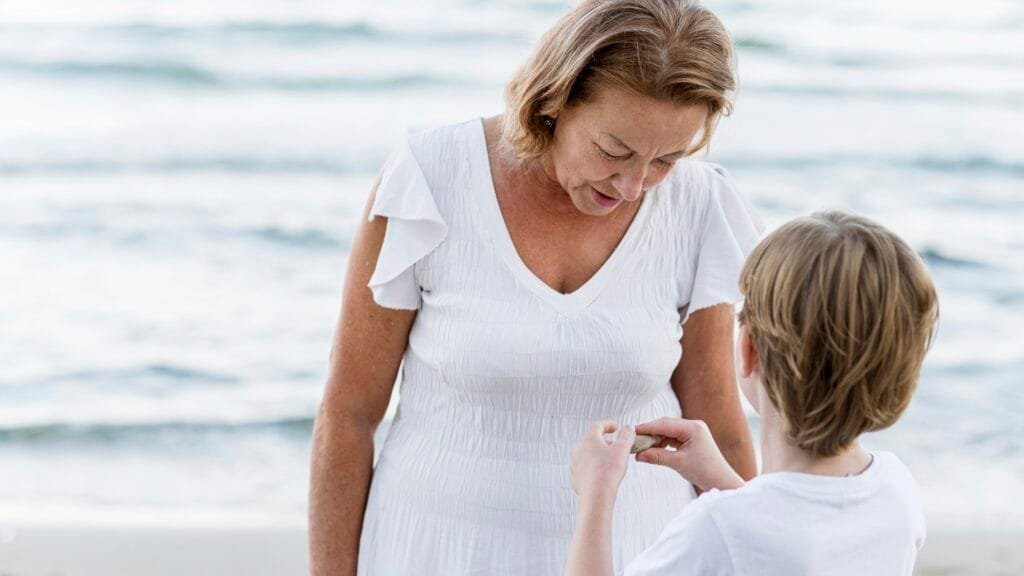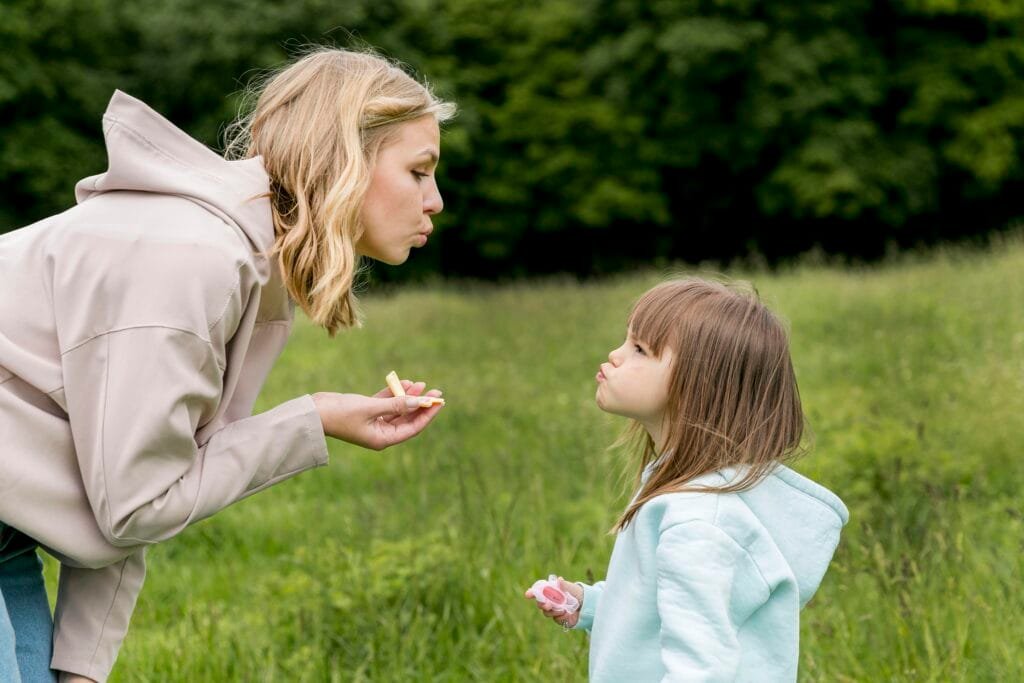Introduction
Parents often ask how they can help their children handle big emotions. Teaching emotional awareness through mindfulness offers effective solutions that work in real-world situations.
Children experience emotions intensely but often lack the skills to understand and express their feelings. Mindfulness helps children develop emotional awareness and builds resilience. Research shows that mindful children have better focus, reduced anxiety, and improved social relationships.
Understanding the science behind emotional development helps parents choose effective mindfulness techniques for their children.

The Science Behind Children’s Emotional Development
The brain development of children follows a specific pattern that explains why they react emotionally before thinking logically.
The amygdala, the brain’s emotional centre, develops faster than the prefrontal cortex, which manages emotional regulation. Dr. Dan Siegel, author of “The Whole-Brain Child,” states:
“When we help children name their emotions, they develop better emotional control and social understanding.”
Scientific studies show:
- Children’s stress response systems develop between ages 3-8
- Emotional regulation skills form strongest between ages 6-12
- Early mindfulness practice creates lasting neural pathways
With this understanding of brain development, we can implement age-appropriate mindfulness activities.
Simple Mindfulness Activities for Children
These practical exercises make mindfulness engaging and fun for children while building essential emotional skills.
The Breathing Buddy Exercise (Ages 4-8)
- Let your child pick a stuffed animal
- Have them lie down and place it on their belly
- Ask them to watch their buddy rise and fall with each breath
- Practice for 2-3 minutes daily
- Add simple phrases like “My buddy goes up” and “My buddy goes down”
- Make it playful by letting them choose different buddies
The Weather Report Game (Ages 6-12)
- Ask your child to describe their emotions as weather
- Sunny might mean happy, cloudy could mean sad
- Help them understand that emotions change like the weather
- Practice accepting all emotional states
- Create a daily weather chart
- Discuss weather patterns in their emotions
The Stop and Feel Method (Ages 8-12)
- Teach children to pause when emotions feel strong
- Guide them to identify where they feel the emotion in their body
- Help them name the emotion
- Let them choose how to respond
- Practice during calm moments
- Create a physical signal for “stop and feel” moments
While children practice these activities, they may encounter resistance from their inner critic.
Common Inner Critic Responses in Children
Understanding how the inner critic speaks to children helps parents provide effective support.
Children’s inner critics often say:
- “I’m not good enough”
- “Other kids are better than me”
- “I always mess up”
- “I can’t do this right”
- “Nobody likes me”
- “I’m not smart enough”
Help children recognize these thoughts as normal but not true. Dr. Kristin Neff, a self-compassion researcher, notes:
“Children need to learn that having an inner critic is normal, but they don’t have to believe everything it says.”
Parents can track their child’s progress through observable changes in behaviour.

Signs of Progress
Recognizing improvement helps maintain motivation and adjust practices as needed.
Your child shows emotional awareness when they:
- Express feelings using specific words
- Notice physical sensations linked to emotions
- Take breathing breaks without prompting
- Show empathy for others’ feelings
- Use mindfulness tools during stress
- Share their emotional experiences
- Help peers manage emotions
- Request emotional support appropriately
Expert insights provide additional context for understanding children’s emotional development.
Expert Insights
Opening: Leading researchers and practitioners offer valuable perspectives on childhood emotional awareness.
Child psychologist Dr. Lisa Damour explains:
“Mindfulness gives children an internal compass to navigate their emotional world. It’s like teaching them to read, but instead of words, they learn to read their inner experience.”
Additional expert perspectives:
- Dr. Mark Williams: “Children naturally live in the present moment. Mindfulness helps them maintain this gift.”
- Dr. Susan Kaiser Greenland: “Emotional awareness in childhood creates a foundation for lifelong mental health.”
Parents play a crucial role in supporting their child’s mindfulness practice.
Tips for Parents
Success in teaching mindfulness to children starts with parent preparation and involvement.
Practice mindfulness yourself
- Start with 5 minutes daily
- Model emotional awareness
- Share your experiences
Create a quiet space for emotional check-ins
- Designate a special corner
- Include comfort items
- Make it accessible
Validate all emotions without judgment
- Use reflective listening
- Avoid fixing emotions
- Practice acceptance
Use age-appropriate language
- Keep explanations simple
- Use familiar examples
- Include playful elements
Keep sessions short and playful
- Start with 2-3 minutes
- Increase duration gradually
- Follow the child’s lead
Research supports the effectiveness of these mindfulness practices.
Research-Backed Benefits
Scientific studies demonstrate the measurable impact of mindfulness on children’s development.
Studies from the University of California show mindful children demonstrate:
- 24% increase in positive social behaviours
- 20% improvement in academic performance
- 15% reduction in stress-related symptoms
- 30% better emotional regulation
- 25% increased attention span
- 18% enhanced problem-solving skills

Call to Action
Transform your child’s emotional awareness journey with professional support.
Individual guidance can help families implement these practices effectively.
Ready to support your child’s emotional development? Book a one-on-one consultation to create a personalized mindfulness plan for your family. Our experienced coaches will help you:
- Assess your child’s emotional awareness needs
- Learn effective mindfulness techniques
- Develop a consistent practice routine
- Track progress and adjust strategies
- Create family mindfulness rituals
- Address specific emotional challenges
First-time consultation includes:
- 30-minute assessment session
- Personalized mindfulness plan
- Follow-up resources
Contact me today to schedule your consultation. Early emotional awareness creates strong foundations for lifetime well-being
Give your child the gift of emotional intelligence through mindful awareness. Book your session now and begin this transformative journey together.




